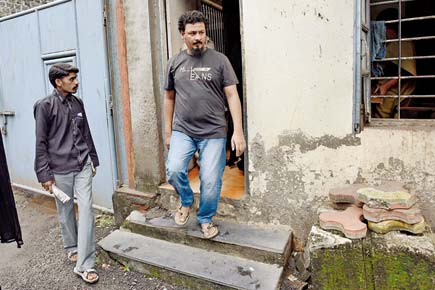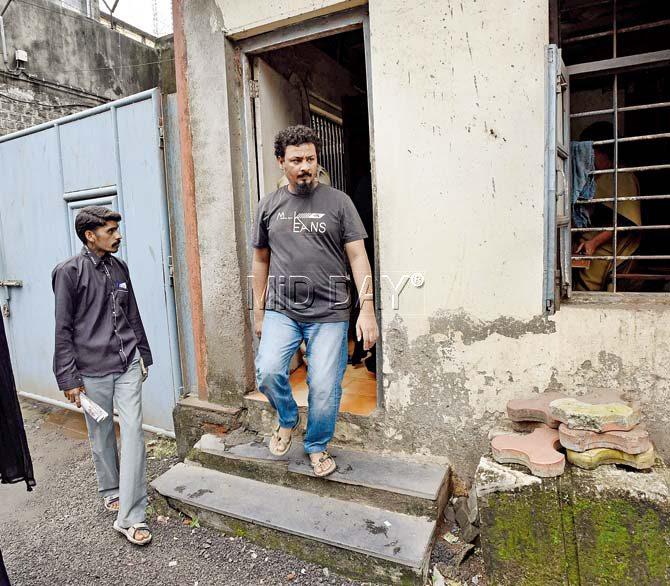A special MCOCA court on Thursday convicted Sayed Zabiuddin Ansari alias Abu Jundal, a key plotter of the 26/11 terror attacks, along with 11 others accused in the 2006 Aurangabad arms haul case

A special MCOCA court on Thursday convicted Sayed Zabiuddin Ansari alias Abu Jundal, a key plotter of the 26/11 terror attacks, along with 11 others accused in the 2006 Aurangabad arms haul case. The court observed that after the 2002 Gujarat riots, the conspiracy was to eliminate then Gujarat CM Narendra Modi and VHP leader Pravin Togadia.
ADVERTISEMENT

Mohammed Juber walks out of the court after he was acquitted. Pic/Suresh Karkera
In a nutshell
Out of the 22 accused in the case, special MCOCA Judge Shrikant Anekar convicted 12 while acquitting eight others. Two others, Shaikh Abdul Naim, who had fled during the trial, while Mehmud Sayyed alias Munna Mustafa who turned approver and retracted his statement, will have a separate trial. The court also discharged all the accused from the Maharashtra Control of Organised Crime Act (MCOCA) and instead convicted them under sections of Explosive Substance Act, Explosive Act, Arms Act and Conspiracy. Of the 12 convicted, seven, including Jundal, are convicted under sections of Unlawful Activities (Prevention) Act (UAPA).
The charges against the 22 accused had been framed in August 2013. To build their case, special public prosecutor Vaibhav Bagade examined 100 witnesses while defense lawyers examined 16 witnesses. Yesterday, in its judgment, the court accepted the Anti-Terrorism Squad’s (ATS) contention that the accused were caught in two cars with the cache of arms and ammunition, which had originally been procured from Pakistan, but discarded the theory that there was a conspiracy that the second car was headed to Aurangabad and Malegaon.
Today, the court will convene to hear the arguments on the quantum of the sentencing.
Pointed observations
Judge Anekar observed that the convicted accused wanted to exact revenge by “eliminating then Gujarat CM Narendra Modi and VHP leader Pravin Togadia after the 2002 Gujarat riots”. He added that the accused — connected since 1996 and bound by a common thought process for Islam — worked in the name of jihad and their agenda was to strike terror in the minds of people. The judge further noted that wanted accused Rahil was in touch with Samad Khan, who was trying to get in touch with Firoz Deshmukh to seek a set of CDs of Zakir Naik. However, the cops had not probed that line of investigation.
While convicting the accused, of the 10 confessions, the court considered three — those of Mohammad Amir, Muzzafar Tanveer and Faisal Shaikh — along with emails and call data records of the other accused.
 Subscribe today by clicking the link and stay updated with the latest news!" Click here!
Subscribe today by clicking the link and stay updated with the latest news!" Click here!






